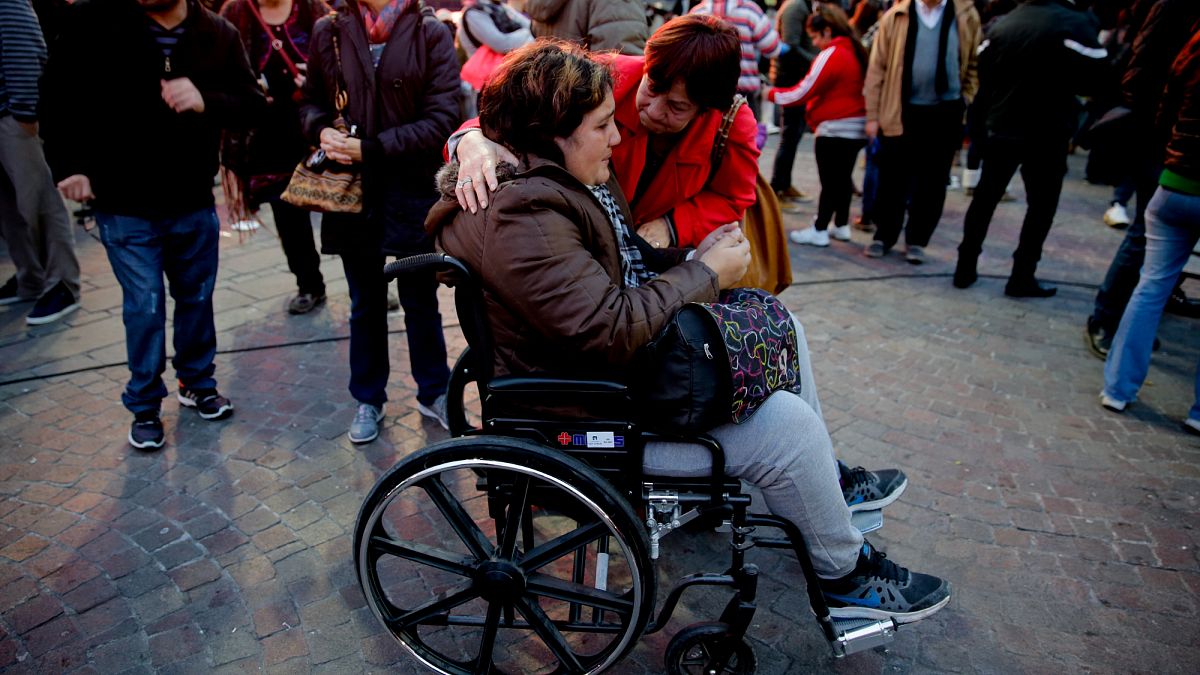The EU should address the growing number of persons with disabilities living in institutions in its upcoming plans for affordable housing, Denmark’s minister for social affairs and housing told Euronews.
“We need to work on housing first, but in order to do that we need affordable housing, and it’s the same about independent living,” Sophie Hæstorp Andersen said in an interview. “We need to secure more independently living, but that also means securing affordable housing.”
Although international agreements call for the independence and inclusion of people who need care or support, many EU member states still rely heavily on large-scale institutional living.
Around two million people with disabilities live in institutions in the EU, according to the latest available figures from 2020. The majority are people with intellectual disabilities or complex support needs.
Living in an institution has been shown to cause isolation, depersonalisation and paternalism, as well as a lack of control over day-to-day decisions and routine.
The number of adults living in institutions has even grown in half of the EU member states over the past decade.
Eurofound reports that the institutionalisation of persons with disabilities has increased hugely in EU nations — a 29% rise over the decade preceding the most recent estimate.
However, the situation varies widely between member states.
For example, France has seen a 100% increase in adults living in residential institutions over the last decade, while Finland has experienced a 60% decrease. Meanwhile, Italy and Luxembourg have made no progress, according to Eurofound.
Behind the institutionalisation of people with disabilities is the shortage of accessible housing, local services and personal assistance schemes — leaving families with no alternative but to place their relatives in institutions for safety and support.
For the European Disability Forum (EDF), a coalition of 116 organisations advocating for the rights of people with disabilities, this trend highlights that many EU countries are actually moving “the opposite way” of their stated commitment to disability rights.
Milan Šveřepa, director of the Brussels-based advocacy group Inclusion Europe, had a similar view, arguing that nations need to stop putting people in segregated institutions.
“That of course needs to go hand in hand with providing housing, and support services for people with disabilities — from home support to training and jobs, to other types of support people need,” Šveřepa told Euronews.
What is the EU doing to improve living conditions?
Over the past year, the EU has proposed initiatives such as the European Disability Card and the European Parking Card, aiming to improve the free movement of people with disabilities across the bloc.
But the EU Strategy for the rights of persons with disabilities 2021-2030 is still only “halfway”, argued the Danish minister Hæstorp.
“We have already done a lot, but one thing is to actually decide initiatives like those, and another thing is actually to make them work in real life,” Hæstorp said.
“I think that we still need to focus a lot on implement on implementing some of the initiatives that has been put forward so far,” she added.
The current EU strategy aims to mainstream the inclusion of people with disabilities, with recommendations focusing on skills development, access to education and healthcare, and greater participation in political and social life.
“We must promote a more inclusive world and labour market. We need their skills on board, and they must have and enjoy a more independent living”, the Commissioner for Equality Hadja Lahbib said at a meeting of EU equality ministers in Luxembourg on Friday.
During the meeting, equality and social affairs ministers met with the European Commission to discuss the social inclusion of people with disabilities by promoting independent living and ensuring that disability considerations are part of all EU policies.
While the Council’s conclusions reflect many of the points raised by the disability movement, EU member states have clearly tried to let themselves off the hook, according to Yannis Vardakastanis, President of the European Disability Forum (EDF).
This is “both in terms of admitting their own shortcomings, and in terms of committing to concrete actions that would pave the way for improvements,” he told Euronews.
Last year, the European Commission also published guidance to help countries advance their measures for independent living and community inclusion, enabling them to fulfil their obligations under the United Nations Convention on the Rights of Persons with Disabilities, a document signed and ratified by all EU member states.
Read the full article here


